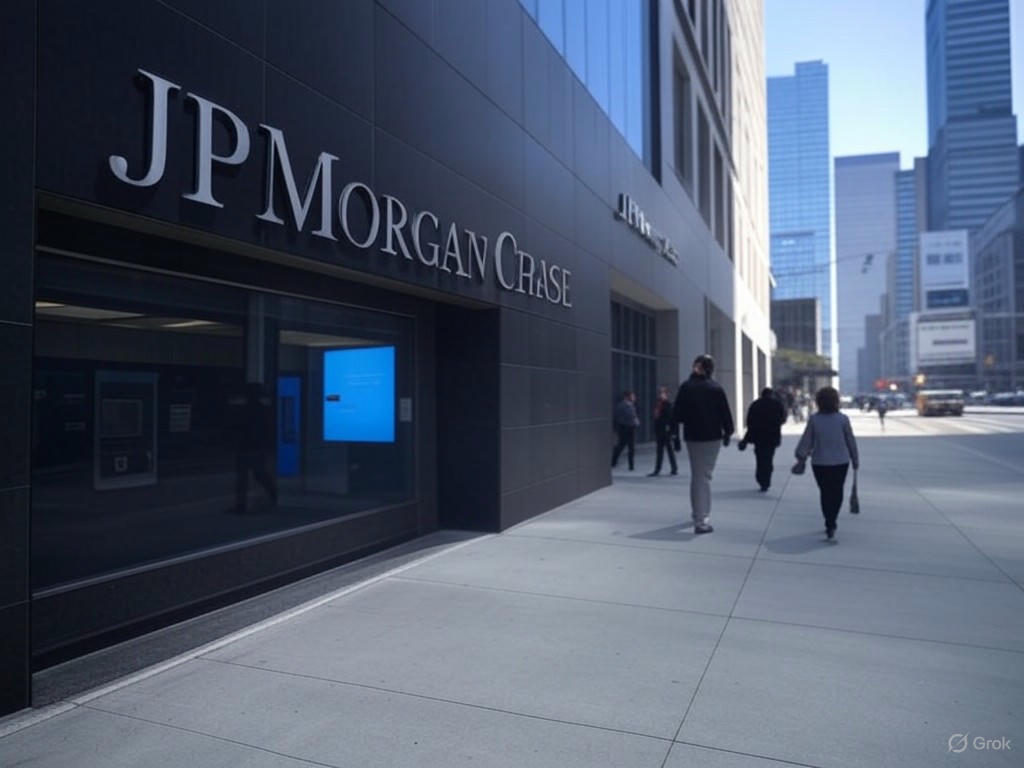In a surprising yet strategic step, JPMorgan, one of the world’s leading financial institutions, has recently filed a trademark under the name ‘JPMD,’ sparking widespread curiosity in the financial and cryptocurrency sectors. This move signals the banking giant’s potential deeper dive into the realm of digital currencies and blockchain-based payment solutions. While details remain under wraps, industry insiders suggest that this trademark could be the foundation for a suite of innovative crypto services aimed at transforming how transactions are conducted in the digital age.
The filing of ‘JPMD’ comes at a time when the intersection of traditional finance and cryptocurrency is becoming increasingly significant. Major banks have long been cautious about fully embracing digital assets due to regulatory uncertainties and market volatility. However, JPMorgan has been a notable exception, having previously explored blockchain technology with initiatives like its JPM Coin, a digital token designed for instant payments. The ‘JPMD’ trademark could represent an expansion of these efforts, possibly focusing on broader crypto payment systems or even a collaborative project with other financial powerhouses. Rumors are swirling that this could tie into a stablecoin initiative, a type of cryptocurrency pegged to stable assets like fiat currency, which could minimize the wild price swings often associated with digital coins.
What sets this development apart is the potential for JPMorgan to bridge the gap between conventional banking and the decentralized world of crypto. A stablecoin or payment platform backed by a titan like JPMorgan could offer unparalleled trust and stability, attracting both institutional investors and everyday users. Imagine a future where cross-border payments, often bogged down by fees and delays, are executed instantly via a secure, bank-supported digital currency. This could redefine financial inclusion, especially in regions where access to traditional banking is limited. Additionally, partnering with other major banks, as speculated, might create a unified front that could set industry standards for crypto transactions, further legitimizing the space.
However, challenges remain on the horizon. Regulatory scrutiny over cryptocurrencies continues to intensify globally, with governments wary of risks like money laundering and financial instability. JPMorgan will need to navigate this complex landscape carefully to ensure compliance while pushing the boundaries of innovation. Moreover, public perception of banks entering the crypto arena is mixed—some view it as a necessary evolution, while others fear it could undermine the decentralized ethos of blockchain technology.
As the world watches, the ‘JPMD’ trademark filing could mark a turning point for JPMorgan and the broader financial industry. Whether it leads to a groundbreaking stablecoin, a new payment ecosystem, or something entirely unexpected, one thing is clear: the line between traditional finance and cryptocurrency is blurring. This bold step by JPMorgan underscores the growing acceptance of digital assets and hints at a future where banking and blockchain coexist seamlessly, reshaping the way we think about money.
